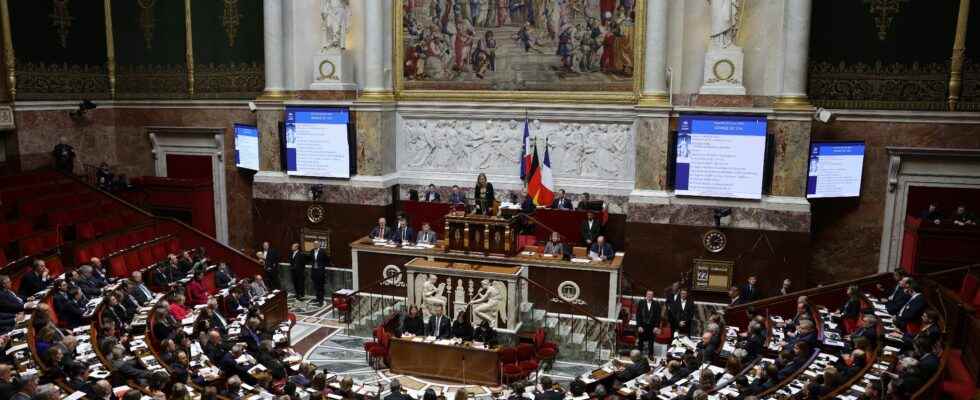The twists and turns can even happen in the Senate. The upper house, with a majority on the right, adopted on the evening of Wednesday February 1, to everyone’s surprise, the inclusion in the Constitution of the “freedom” to resort to voluntary termination of pregnancy (IVG). This vote paves the way for a revision of the fundamental law, deemed impossible a few weeks ago. But the path remains strewn with pitfalls and heavy uncertainties.
The Senate pronounced on Wednesday on a proposed constitutional law (PPLC) LFI voted in November by the National Assembly with the support of the presidential majority. She was promised a massive rejection, before an amendment by Senator LR Philippe Bas reshuffled the cards. The elected representative of La Manche rewrote the text of the Palais Bourbon, drawing inspiration from a case law of the Constitutional Council of 2001. “The law determines the conditions under which the freedom of the woman to terminate her pregnancy is exercised” , he proposed to include in Article 34 of the Constitution. Bingo. This wording was adopted, by 166 votes to 152.
Referendum or Congress
The games are not yet done. To be adopted, any constitutional amendment must first be voted on by both chambers in identical terms. It’s not yet the case. The National Assembly should therefore recover the text of the Senate within the framework of the shuttle, on the occasion for example of a parliamentary niche.
If the deputies vote for the senatorial version, then a referendum will be organized. The rule here is strict: a PPLC can only be adopted by popular vote. However, many elected officials and feminist organizations fear this election. It would provide unexpected media exposure to opponents of abortion rights, at the cost of strong social tensions. “No need to reactivate the crazy anti-abortion”, judge a deputy of the majority.
Several parliamentarians, such as the president of the Renaissance group Aurore Bergé, want the government to table a constitutional bill (PJLC). The procedure is more flexible: the Head of State can rule out the referendum in favor of a three-fifths vote of the two assemblies meeting in Congress. The PJLC must then be adopted by the two assemblies in the same terms, the text of Philippe Bas being able to act as a common denominator. “The way is clear, Ms. Borne: it’s up to you to file a bill!” Implored the president of the LFI group Mathilde Panot on Twitter.
Executive caution
The executive remains silent. Senator Philippe Bas on Wednesday criticized Minister of Justice Eric Dupond-Moretti for remaining on the “sideline”, hands in “pockets”. The government is very ambiguous here. He reiterates his support for the constitutionalization of the right to abortion, but has never expressed his desire to take the file in hand. The Keeper of the Seals twice hailed the “parliamentary initiatives” on Wednesday, without ever going any further. Within the executive, it is urgent to wait. “The shuttle continues. The text must return to the Assembly to achieve a valid vote”, we are content to indicate to Matignon. Same caution at the Elysée. “The PPL must follow its path. […] So far, the President of the Republic is watching this initiative with great interest.”
Procedural puzzle, one side. Fundamental questions of the other. The text adopted in the Senate does not trigger overwhelming enthusiasm among supporters of a constitutionalization of abortion. They are certainly sensitive to the political signal sent by the upper house, but consider that the Bas amendment has a lower scope than the mechanism voted in the Assembly, which guarantees “the effectiveness and equal access to the right to voluntary interruption of pregnancy”. “I have many legal questions about this wording, says MoDem deputy from Finistère Erwan Balanant, who rewrote the LFI bill passed at the Palais Bourbon. Our text has the advantage of putting a ratchet effect on current law. , which is not the case here. These doubts call for a question: will deputies propose a new wording, at the risk of robbing the Senate? Wednesday’s vote is not a point of arrival, but a point of departure.
